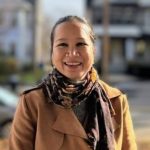Course Information
- 2024-25
- CFU215
- 5-Year B.A., LL.B. (Hons.), 3-Year LL.B. (Hons.), LL.M., Master's Programme in Public Policy
- III, IV, V
- Jul 2025
- Elective Course
This seminar intends to offer an introduction to the foodways in South Asia with special reference to India, and its objective is to build foundational understanding of approaching food research in the region. One of the key questions guiding the seminar is, where do our food come from? Exploring answers to this across South Asia anticipates opening up multiple other questions relating to food production and consumption. Once we start tracing the journey of our food backwards from our kitchen to the fields, we are exposed to circumstances that define our food choices and culinary practices. The seminar begins with the crucial conversation around seeds and how seeds would define not only the nutritional requirements of the population but are inevitable in preserving the socio-cultural ethos of the community. It would help understanding the place of indigenous seeds at the face of the global markets and climate change. It is the seeds that guide the food politics not just in South Asia but across the world, which is sure to contribute to the global movements around food sovereignty.
Understanding the capitalist mode of production, extractive regimes, and militarization is crucial in challenging the state perspective on seeds. It is through the seeds that the course intends to trace people’s connection to their food.
After seeds, the other key discussion would be to trace the transformations in the way people cultivate, be it the space, tools, or the crops. This would open up pertinent questions like who grows, what to grow, how to grow, where to grow, and how much to grow. Students’ reflections on these questions would draw the roadmap of their community’s agrarian histories. It would compel us to think through issues of land ownership and environmental justice. Students will also be able to understand the close relationship shared by the indigenous communities with their land and how the idea of the commons has been sabotaged under capitalist regimes.
Finally, through ethnographies, oral histories, and collective memories, the students will examine how food becomes an analytical tool in understanding the questions of gender, class, caste, ethnicity, and religion. We will do this through people’s memories and lived experiences around food stories set across South Asia. The reading list is curated in such a way that it amplifies the indigenous voices. The course intends to establish how food could be an important tool in understanding global phenomena like labour and migration, water crisis, environmental sustainability, and self-sufficiency. The instructor hopes to bring in her fieldwork expertise from India, Nepal, and Bangladesh during the lectures. Students will read classic texts not necessarily on South Asia alone. Apart from engaging with weekly readings, the students will also engage with documentaries, legislations, cookbooks, and audio-visual aids during the semester.


